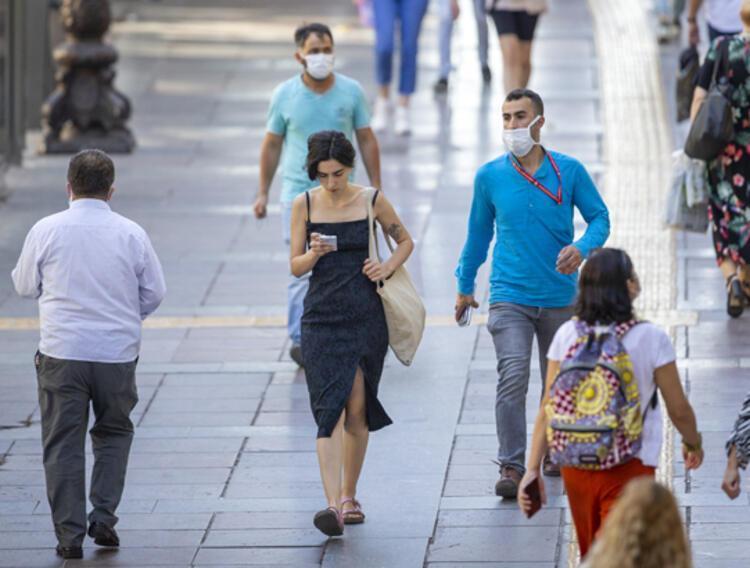Turkey mulls tighter anti-virus measures as cases surge
İZMİR/ISTANBUL

The coronavirus outbreak is intensifying again in Turkey, but at varying rates across the provinces, Health Minister Fahrettin Koca has said, as President Recep Tayyip Erdoğan has warned that some tighter measures may be needed.
“People, unfortunately, ignore the warnings. When curbs were loosened, the number of virus cases increased in Ankara and Istanbul,” Erdoğan told reporters in Istanbul on Sept. 18.
The Health Ministry and the Health Ministry’s Science Board need to ramp up the anti-virus measures, Erdoğan said. “We now have to tighten the measures again.”
Speaking on Sept. 18 in the western province of İzmir of the uneven rise in the number of virus cases in the country, Koca said, “The spike in fresh infections is varying from one province to another.”
In some provinces, the number of patients has been rising while the outbreak has been under control in other provinces, thanks to the measures taken and the public’s responsible attitude, he added.
“For instance, İzmir has been under the spotlight for some time [because of the spike in infections]. We even saw a 42 percent increase in the number of cases on a monthly basis in the city. But the rate of increase has slowed to 10 percent over the past week due to rapid and effective response,” Koca said.
Noting that İzmir is a populous city and home to several resort towns, which is why there is heavy traffic to and from the city, Koca warned: “Because of this, İzmir is playing a crucial role in taking the outbreak under control in the country. People will be returning to their hometowns from İzmir, and the residents will be coming back to the city by the end of summer. This mobility will pose the risk of spreading the outbreak.”
Meanwhile, the Health Ministry’s Science Board is now recommending that people who have been in contact with COVID-19 patients should stay under isolation for at least one week, daily Milliyet reported.
The isolation period for COVID-19 patients’ contacts will terminate if they show no symptoms and test negative at the end of this period.
The Health Ministry is also weighing the option of the introduction “smart bracelets” to prevent people from violating quarantine after flaws and shortcomings of the HES smartphone application emerged in enforcing quarantine.
HES, the acronym for “Hayat Eve Sığar” (Life Fits into Home), is a mobile application spearheaded by the Health Ministry that tracks the contraction of the COVID-19 virus.
Recently, Minister Koca said some 140,000 people, who were supposed to be under quarantine, had been prevented from attempting to venture outside.
Koca also hinted that smart bracelets could be used against the quarantine violators.
“HES is a very functional tool in the disease management. We inspect whether people adhere to quarantine rules or not with this application. However, measures such as smart bracelets will be used for those acting irresponsibly and creating risks to the society,” he said.The death toll from the outbreak in Turkey rose to 7,315, with 66 new fatalities over the past 24 hours.
Some 43 percent of infectious diseases and clinical microbiology specialists have contracted COVID-19 at the institutions they work for, Milliyet reported, citing a recent survey.
More and more specialists are quitting jobs in the face of the heavier work burden, the survey also found.
Some 9 percent of those specialists resigned from their jobs, while another 14 percent retired, the survey showed.
According to the survey, 74.5 percent of the infectious diseases and clinical microbiology specialists are tasked with dealing with COVID-19 patients in emergency and regular wards whereas the corresponding figures for pulmonologists and internal medicine specialists are 63 percent and 60 percent, respectively.
Around 81 percent of the specialists said they did not have any problems accessing personal protective equipment (PPE) and 80 percent said they easily accessed drugs used in treatment.
















